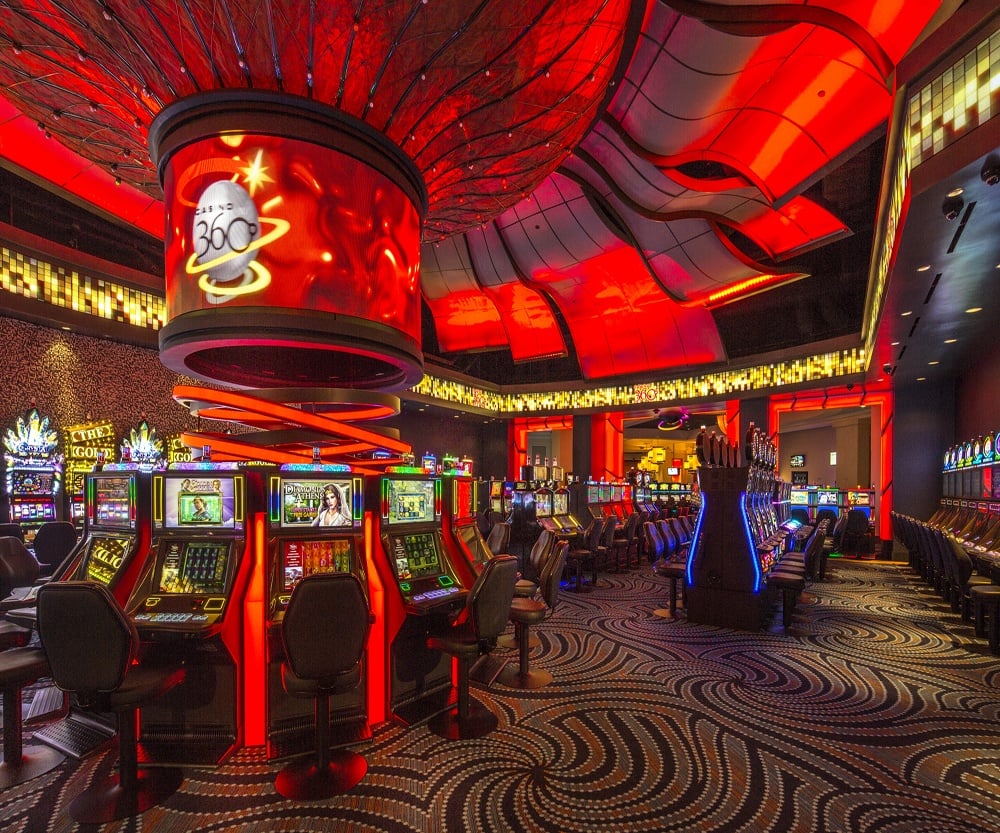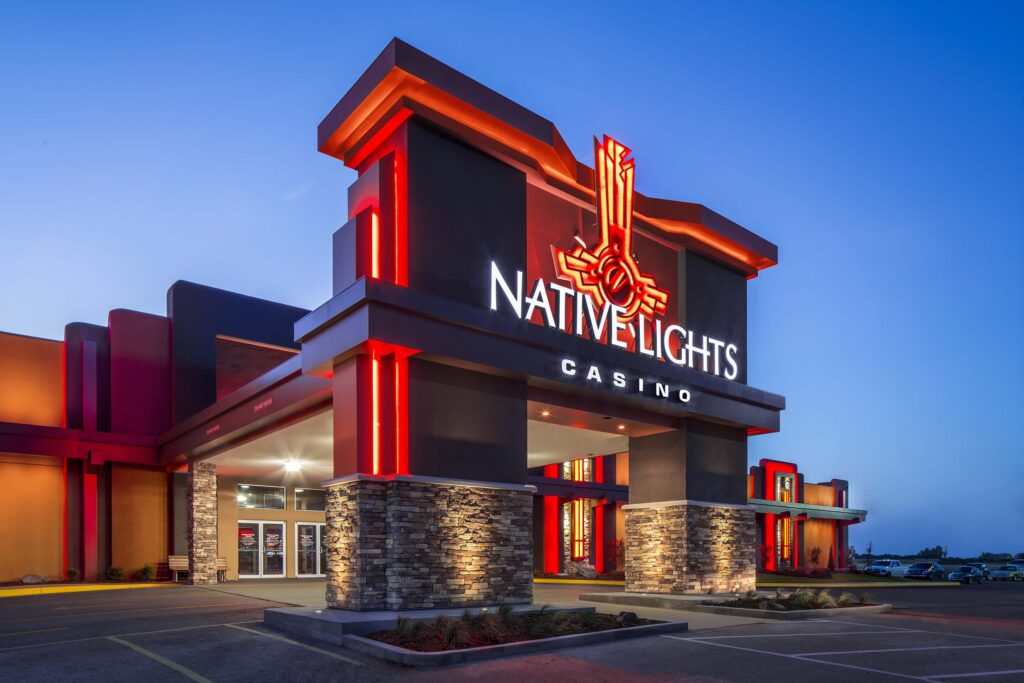- Much like federal revenue, revenue from natural resource extraction on Native American land is collected in each phase of the production process (for instance, companies pay bonuses to secure rights, rents during exploration, and royalties once production begins).
- Under the deal with Connecticut, the tribes have to pay the royalty only so long as they remain the only entities allowed to run casinos in the state. MGM began work on a casino in Springfield, Mass., in 2015, with the 125,000-square-foot gaming floor opening in 2018.
WASHINGTON (CN) – Casino giant MGM filed a federal lawsuit Wednesday claiming that two Native American tribes got an effective monopoly on gambling in Connecticut through a new deal with the government.
Taking aim at the Interior Department, MGM says the government illegally approved changes to an agreement with the Mashantucket Pequot and Mohegan tribes that allowed the tribes to open a casino in East Windsor, Conn., just 12 miles from a new MGM property. Crown gems slots free.
'Interior's approval decisions establish an unlawful state-conferred monopoly over commercial gaming rights in Connecticut,' MGM Resorts International said in a statement about its lawsuit filed in D.C. federal court Wednesday. 'These decisions also stand in the way of an open, competitive process that MGM believes would result in a better deal for the people of Connecticut.'
This is a complete listing of all American Indian Tribes who own and operate federally-approved Indian gaming operations in the U.S. There are 241 American Indian tribes that own casinos or other Indian gaming facilities, such as bingo halls, travel plazas and convenient stores on tribal land.
The Mashantucket Pequot and Mohegan tribes each run large casinos on their reservations in southeastern Connecticut, the only two casinos in the state. The tribes operate Foxwoods and Mohegan Sun, respectively, under an agreement with the U.S. government, and Connecticut gets a 25% royalty on revenue from slot machines under a separate deal with the state.
Under the deal with Connecticut, the tribes have to pay the royalty only so long as they remain the only entities allowed to run casinos in the state.
MGM began work on a casino in Springfield, Mass., in 2015, with the 125,000-square-foot gaming floor opening in 2018. The MGM casino sits just across the state line from Connecticut, and the company says it has spent more than $1 million on advertisements in the Nutmeg State since the casino opened.
Licensing & Eligibility Forms Casino Gaming Model Conducting a Casino Volunteer Requirements & Positions Casino Pooling Guidelines, Terms & Conditions There are two key areas within the casino that depend on volunteer workers: 1. Count Room Each volunteer position works within, or directly in relation to, these two areas. Get And Sign Casino Licence Application 5420 AGLC Aglc Ab 2015-2020 Form. Bank Account Declaration & Volunteer Worker Applications, and Part C – Proposed Use of Gaming Proceeds) and must be completed in full prior to submission. Email: gaming.licensing@aglc.ca Fax: 780‐447‐8911 or 447‐8912 Mail: AGLC c/o: Licensing 50 Corriveau Ave St. Albert, AB T8N 3T5.
Doubledown casino free coins mobile. Seeing the competition building just across the border, Connecticut enacted a law giving the tribes authority to open up a new casino that would not be built on a reservation. The tribes chose the town of East Windsor for the casino, putting a major competitor just 12 miles from the new MGM development.
To do this, the state and the tribes had to make changes to the agreements that allowed the tribes to operate Foxwoods and Mohegan Sun on their reservations. As required under the Indian Gaming Regulatory Act, the tribes and the state submitted these amendments for approval from the Department of the Interior in August 2017.
The agency initially returned the amendments, asking for more information about them. But after the tribes and state filed a federal lawsuit seeking a court order directing the agency to sign off on the amendments, the department reversed course and approved the changes in June 2018.
Since then, MGM has tried to bid on casino projects throughout Connecticut, but with no luck.
Native American Casino Royalties Real Money
In the 33-page lawsuit, MGM says the explanation is simple: The changes the Department of the Interior approved give the tribes a competitive advantage in any bid for a casino project because the state can allow the tribes to open up new casinos without jeopardizing its cut of the slot machine revenue from Foxwoods and Mohegan Sun.
If MGM were to open up a casino in the state, on the other hand, Connecticut's share of the profit would disappear.
Looking to undo this state-backed 'monopoly,' MGM says the Department of the Interior did not have authority to approve the amendments because they have nothing to do with gaming on tribal lands.


'For the first time in the agency's history, Interior approved amendments that authorize a commercial casino, owned and operated by a tribal joint venture, on non-tribal land,' the complaint states.
The company also says the agency could not have approved the amendments because it returned them when it requested more information, meaning they were no longer pending before the department when it approved them.

Doubledown casino free coins mobile. Seeing the competition building just across the border, Connecticut enacted a law giving the tribes authority to open up a new casino that would not be built on a reservation. The tribes chose the town of East Windsor for the casino, putting a major competitor just 12 miles from the new MGM development.
To do this, the state and the tribes had to make changes to the agreements that allowed the tribes to operate Foxwoods and Mohegan Sun on their reservations. As required under the Indian Gaming Regulatory Act, the tribes and the state submitted these amendments for approval from the Department of the Interior in August 2017.
The agency initially returned the amendments, asking for more information about them. But after the tribes and state filed a federal lawsuit seeking a court order directing the agency to sign off on the amendments, the department reversed course and approved the changes in June 2018.
Since then, MGM has tried to bid on casino projects throughout Connecticut, but with no luck.
Native American Casino Royalties Real Money
In the 33-page lawsuit, MGM says the explanation is simple: The changes the Department of the Interior approved give the tribes a competitive advantage in any bid for a casino project because the state can allow the tribes to open up new casinos without jeopardizing its cut of the slot machine revenue from Foxwoods and Mohegan Sun.
If MGM were to open up a casino in the state, on the other hand, Connecticut's share of the profit would disappear.
Looking to undo this state-backed 'monopoly,' MGM says the Department of the Interior did not have authority to approve the amendments because they have nothing to do with gaming on tribal lands.
'For the first time in the agency's history, Interior approved amendments that authorize a commercial casino, owned and operated by a tribal joint venture, on non-tribal land,' the complaint states.
The company also says the agency could not have approved the amendments because it returned them when it requested more information, meaning they were no longer pending before the department when it approved them.
Finally, the company argues the agency did not do enough to explain its decision.
Native American Casino Royalties Bonus
The Department of the Interior did not immediately return a request for comment on the decision.
Neither tribe is a party to the lawsuit in Washington, but Andrew Doba, a spokesman for their joint venture, called the lawsuit frivolous.
'MGM pursues litigation because that's what MGM does,' he said.
'The choice for Connecticut policymakers can't get any clearer,' Doba added. 'We can either let a Las Vegas company that generates not one dime of revenue for the state push us around or we can stand strong with the tribes and an industry that's generated more than $8 billion in tax revenue and currently employs 18,000 people.'
NPR's sites use cookies, similar tracking and storage technologies, and information about the device you use to access our sites (together, 'cookies') to enhance your viewing, listening and user experience, personalize content, personalize messages from NPR's sponsors, provide social media features, and analyze NPR's traffic. This information is shared with social media, sponsorship, analytics, and other vendors or service providers. See details.
Native American Casino Royalties Entertainment
You may click on 'Your Choices' below to learn about and use cookie management tools to limit use of cookies when you visit NPR's sites. You can adjust your cookie choices in those tools at any time. If you click 'Agree and Continue' below, you acknowledge that your cookie choices in those tools will be respected and that you otherwise agree to the use of cookies on NPR's sites.